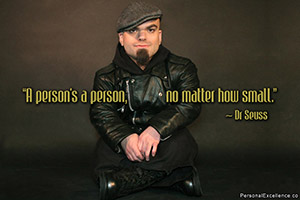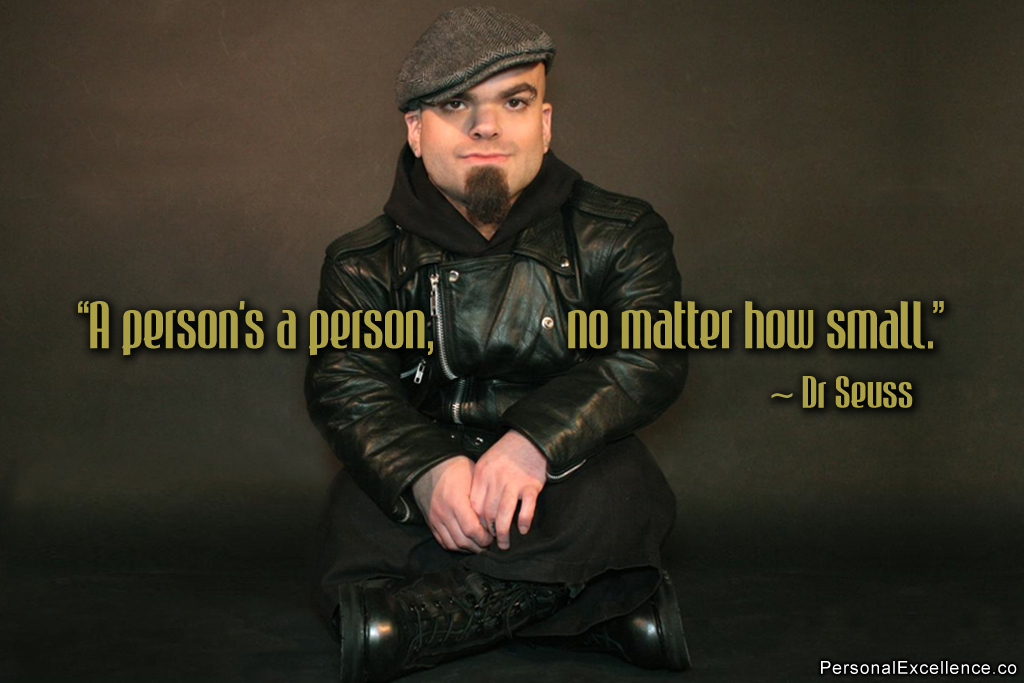
(Image)
Keep your end objective in mind means being mindful of your end goal when doing something. There are really two steps to it:
- First, be clear on your end objective.
- Second, evaluate your actions against this objective.
1) Be clear on your end objective
There are three kinds of end objectives you need to be clear on:
- Life objective: What is your life purpose?
- Goal objective: What is the objective of your goal?
- Task objective: What is the objective of this task you are doing?
Each objective sets the context for the things that follow. Your life purpose determines what you do in your life, and the goals you set. Your goals determine the tasks and things you do daily. And your tasks determine what you spend time on. This means that the tasks you do every day should be a subset of your goals, while your goals should be a subset of your life purpose.
Your life purpose is like your ultimate objective in life. If you are unclear on your life purpose, the other things that follow will be ambiguous as well. While you can be pursuing goals, they may or may not lead you to your ultimate destination when you’re 50, 60, 70, or 80 years old.
Similarly, if you are unclear on your goals, your day-to-day tasks will be random and at times directionless. While you can be busy every day, you will often find that you’ve not accomplished much at the end of the month, three months, or six months. At the end of this is a busy but unproductive and unfulfilling life.
I have already written about the importance of identifying your life purpose and setting goals, so I will refer you to the articles instead:
- Importance Of Having a Life Objective: 5 Reasons You Should Have a Life Purpose
- Importance Of Having Goals: 7 Important Reasons Why You Should Set Goals
When you have your life objective and goal objectives clear, you will be able to clearly identify your task objectives too.
2) Evaluate what you’re doing against this objective
As with everything in life, different obstacles will start emerging in your path as you pursue your objectives. Multiple options start getting dangled in front of you, each with its own set of pros and cons. Forks in the road appear. Different considerations start seeping in. As if that isn’t enough, people start giving their own opinions and take on your situation. In no time, you start becoming confused by everything that is before you.
When that happens, just recall what your end objective is – the very same objective you identified in the beginning. Assess everything that you see against it. Evaluate your options in terms of how well it serves your objective. If you find that the option does not meet your objective, throw them away. You will find that decision making becomes condensed into a very easy and simple task.
Running PersonalExcellence.co
For example, my # 1 objective running this site is to help others achieve their highest potential. This guides all the decisions related to it. As I run this site every day, I get various different requests. Advertisers contact me from time to time to place advertisements. Program developers request me to do reviews for their software. Other webmasters approach me to write guest posts for their sites.
Without my end objective in mind, it’s easy to get thrown off by the various things that occur. For example, I can ask a truckload of questions to each of the requests. To the advertisers, I can be asking: “How much is sponsorship for the advertisement? How long is the campaign? How many ads are you looking to serve? What is the size of the ads?” To the program developers, I can be asking “How is the incentive for me to write the review? How long do you want the review to be?” To the other webmasters, I can be asking “How much incremental traffic can I get from writing a guest post on your site? How long are your guest posts? When do you need it?” For each of these requests, I will have different considerations, such as time, money, resources, the benefits and downsides.
However, when I’m clear on my end objective, everything becomes very simple. I always start off every decision making process by evaluating them against my objective. Do the advertisements correspond to the theme of personal development? Is the software in line with personal productivity? Do the other webmasters’ sites themes have an overlap with personal development?
If the answer to any of these questions is a ‘No’, I will turn down the request, without need for further thought. Sure, it may give me more money. Sure, it may give me more traffic. But the primary objective must always be met before anything else should be considered.
Some of you may be quick to point out that without earning money, I cannot sustain this blog forever. That’s very true — and this makes earning money a secondary objective that is necessary to achieve my end objective. Earning money is thus a goal that is needed to achieve my end goal of helping others achieve their highest potential, meaning it is the means to my end.
Seeking a new job
Another example which I would like to share and readers will be able to relate to is looking for a job. As you may be aware, I’m planning to return to work after a few months. In the past few weeks, I have been keeping my options open, connecting with head hunters and my previous company to see what’s available in the near term (my ex-company kept the door open for me to return when I left last year).
If we look at what my objective for returning to a day job is, it is to be able to pursue my personal development work (i.e. my coaching/speaking activities) without having to worry about financial considerations. Based on that objective, my top priorities for my day job are:
- Work-Life Balance. This is important since I’ll be managing my personal development work alongside with y day-job.
- Development opportunities. To grow and help others grow is my core purpose and passion, and if I’m going to face something at least 8 hours every day, it needs to have development opportunities both for me as on a personal level and towards other people. Thus, I’ll need to have work that is dynamic in nature and lets me interact/work with a wide span of people.
- Affinity with the industry and work. The nature of the industry and work need to be something I have an interest in.
I didn’t list remuneration/benefits as a priority, since the very act of getting a day job already addresses that.
In the past couple of weeks, there were two extremely good opportunities that came along the way which looked amazing by themselves. However, when evaluated against my objective/top 3 priorities, they did not pass the test. Thus, I made the decision to pass them up. While others may feel that it is a pity, their feelings are a result of looking at the options from their own life/goal objectives. It is important to always keep yourself open to the opinions and feedback from other people, while at the same time remembering that your evaluation should be done against your own objectives.
Update on Mar 2009: I’ve decided to pursue my personal development work full-time and not return to a corporate day job. :) Read: Embracing My Passion
Are You Clear On Your End Objective?
Ask yourself these questions: What is your objective in life? What is the objective behind the goals you pursue? What is the objective behind the tasks you do everyday?
Whatever you do, always bear in mind your end objective. Every time you begin a task, be clear on what the end objective is. Every time you are working on something, evaluate it against your objective. Only by unwavering focus with the end in your mind will you achieve it.






 If you like my articles, join my community of 65,000 readers and get my latest articles delivered to your inbox. Your email is safe. 100% no spam.
If you like my articles, join my community of 65,000 readers and get my latest articles delivered to your inbox. Your email is safe. 100% no spam.
You have outlined this technique very clear, Celestine. Setting up our dreams, goals and objectives is the first step we have to take toward the top of success. As you said, if we are clear on our end objective, everything becomes very simple.
Thanks for sharing, Celestine.
Hi Celes,
The end objective…something I haven’t always focused on. And when I haven’t, it’s been easy to wallow along – drifting aimlessly at times. I recall this when I started my blog. And I had some ads up on the site, but there was no rhyme or reason to them. I quickly realized they didin’t fit with the image I wanted to portray. Now, I really do try to look at what I ultimately want. And another point here is that it’s okay if that end objective changes – as long as we remain focused on it.
Hi Celes.
This focus sure does allow you to toss away items that would normally slow your efforts. Also, it does tend to be beneficial to bring up optional choices that were denied, so as to showcase your level of control, and be able to bring up the options that would have been left unknown otherwise. One example that comes to mind is the reporting of a large sum being offered for one’s site, and it being denied by the site-owner. He was able to keep his end objective in mind, and also make his site seem more valuable to his readers, as the amount of money in the offer was then loosely attached to the value of the site in the readers’ minds.
Commenting for this post is closed.